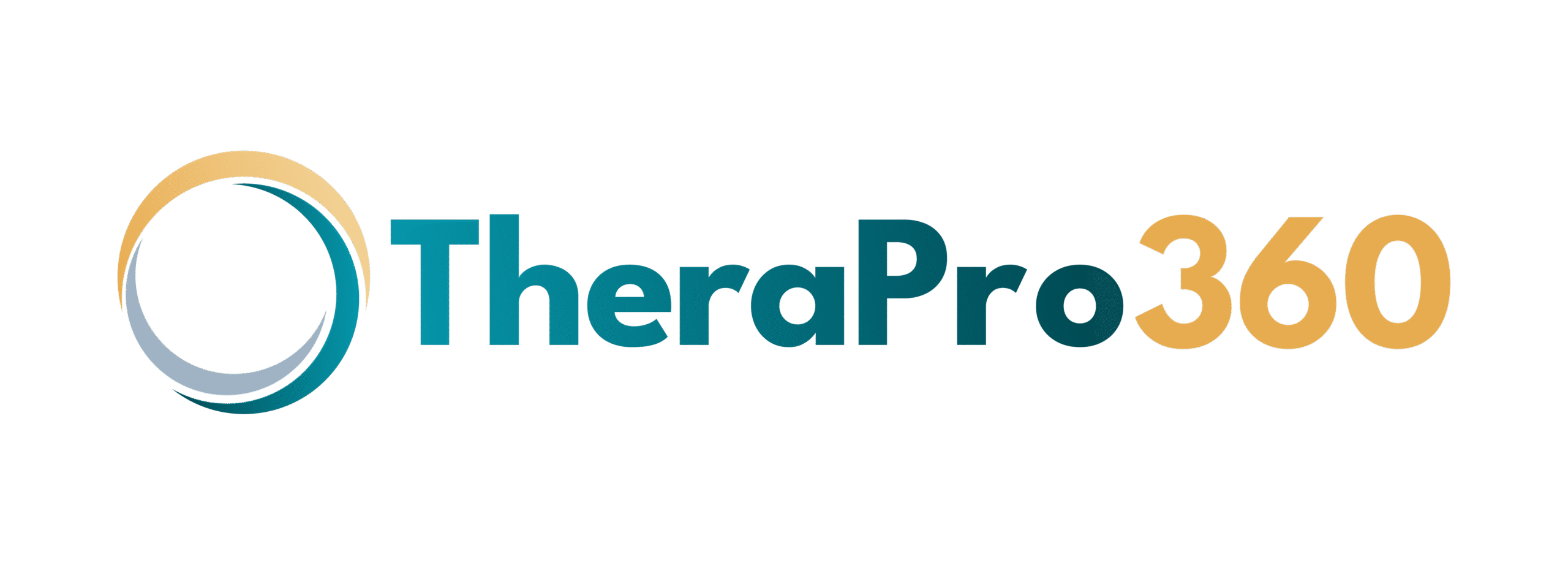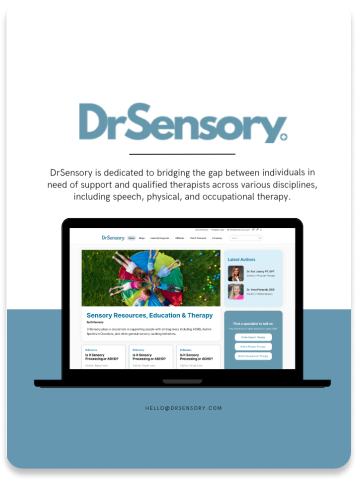
Blog
How to Keep Your Speech Therapy Practice HIPAA-Compliant
Expert web designers ensure the site and software is easy to use.How to Keep Your Speech Therapy Practice HIPAA-Compliant
For speech therapy practices, trust is the most valuable asset. Families entrust you with their loved ones’ care and their sensitive personal information. Protecting that information isn’t just good business practice—it’s a legal and ethical obligation under the Health Insurance Portability and Accountability Act (HIPAA). Navigating HIPAA’s complex rules can feel overwhelming, especially with the rise of digital tools, telehealth, and electronic records. A single misstep can lead to significant fines, reputational damage, and a breakdown of client trust.
However, compliance doesn’t have to be a source of stress. With the right knowledge, processes, and technology, you can build a secure practice that protects patient data while operating efficiently. The key is moving from a reactive, fearful mindset to a proactive, systems-based approach to privacy and security.
This comprehensive guide will break down HIPAA requirements for speech therapists in simple terms. We’ll cover the key areas of compliance, common mistakes to avoid, and the critical role that modern practice management software for speech therapists plays in simplifying and automating security so you can focus on what you do best: providing exceptional care.
Why HIPAA Compliance Matters in Speech Therapy
HIPAA is more than a set of rules; it’s the foundation of patient trust in the digital age. For a relationship-based field like speech therapy, demonstrating a commitment to privacy is essential for building a sustainable and respected practice.
Protecting patient privacy and building client trust
Clients share deeply personal information with you, from diagnoses and medical histories to financial details. They expect this information to be kept confidential. When you have strong HIPAA compliance measures in place—like using secure messaging instead of standard text—you send a clear signal that you take their privacy seriously. This builds confidence and strengthens the therapeutic alliance, which is crucial for client retention and positive outcomes.
The role of HIPAA in telehealth and digital communication
The shift to telehealth, email reminders, and online portals has made communication more convenient, but it has also created new risks. Every email, text, and video session is a potential point of vulnerability for Protected Health Information (PHI). HIPAA provides the framework for using these powerful tools safely. It dictates that any electronic communication containing PHI must be encrypted and secure, making a compliant technology platform an absolute necessity for modern practices.
How compliance impacts your practice’s reputation and growth
A data breach can be devastating for a therapy practice. Beyond the substantial fines, the damage to your reputation can be irreparable. News of a breach can destroy client trust overnight, leading to an exodus of current clients and making it nearly impossible to attract new ones. Conversely, a practice known for its professionalism and secure practices builds a strong brand reputation, which becomes a powerful asset for growth and attracting referrals from other healthcare providers.
Understanding HIPAA Requirements for Speech Therapists
At its core, HIPAA is designed to protect the privacy and security of individuals’ health information. To comply, you first need to understand what information is protected and what safeguards are required.
What types of information are protected under HIPAA
HIPAA protects any information that is considered Protected Health Information (PHI). PHI is any individually identifiable health information that is created, used, or disclosed during the course of care. This includes not only clinical details but also demographic and financial information.
Common examples of PHI in a speech therapy practice include:
- Patient’s name, address, birthdate, or social security number
- Diagnoses (e.g., Autism Spectrum Disorder, Aphasia)
- Treatment plans and progress notes
- Appointment dates and times
- Billing statements and insurance information
- Any photos or videos of the client
If a piece of information can be used to identify a patient and relates to their health, status, or payment for healthcare, it is PHI.
Administrative, physical, and technical safeguards explained
HIPAA’s Security Rule requires practices to implement safeguards in three key areas:
- Administrative Safeguards: These are the policies and procedures that govern your practice’s security. This includes conducting a security risk analysis, designating a privacy officer, training your staff on HIPAA, and having a signed Business Associate Agreement (BAA) with all vendors who handle PHI on your behalf (like your software provider).
- Physical Safeguards: These are measures to protect your physical location and equipment. This includes locking file cabinets containing paper records, positioning computer screens away from public view, and securing your office after hours.
- Technical Safeguards: These are the technology-based controls used to protect electronic PHI (ePHI). Key technical safeguards include access control (unique user logins), data encryption, audit controls (logging who accesses what information), and authentication (ensuring a user is who they say they are).
Common compliance mistakes in therapy practices
- Using Non-Secure Communication: Texting clients, using personal Gmail for work, or using standard Zoom for telehealth are all common but serious violations.
- Improper Record Disposal: Throwing paper records with PHI in the regular trash.
- Lack of Staff Training: Failing to train employees on HIPAA policies, leaving the practice vulnerable to human error.
- No Business Associate Agreements (BAAs): Working with a software vendor, billing service, or IT company without a signed BAA in place.
- Weak Password Security: Sharing passwords or using simple, easy-to-guess passwords.
The consequences of non-compliance — fines and data breaches
The penalties for HIPAA violations are severe and tiered based on the level of negligence. Fines can range from a few hundred dollars for minor violations to over $1.5 million per year for willful neglect. Beyond the financial cost, a breach requires you to notify affected clients and, in many cases, the media, leading to significant reputational damage that can be difficult to overcome.
Key Areas Where Speech Therapy Practices Must Stay Compliant
Compliance isn’t a one-time task; it’s an ongoing process that touches nearly every part of your daily operations.
Secure storage and transmission of patient data
All electronic PHI (ePHI) must be protected, both when it’s stored (“at rest”) and when it’s being sent (“in transit”).
- Data at Rest: This means the data on your server, computer hard drive, or in your cloud-based software must be encrypted.
- Data in Transit: When you send an electronic claim, email, or secure message containing PHI, it must be transmitted over an encrypted connection.
Proper use of email, telehealth, and messaging platforms
You cannot use standard, consumer-grade tools for clinical communication.
- Email: Only use a secure, encrypted email service for communicating PHI. Many practices avoid emailing PHI altogether and instead use a secure patient portal.
- Telehealth: Your video platform must be HIPAA-compliant with end-to-end encryption.
- Messaging: All text-based communication with clients containing PHI must occur through a HIPAA-compliant secure messaging tool, typically found within a patient portal.
Access control and staff authorization protocols
Not everyone on your team needs access to all information. HIPAA’s “Minimum Necessary Rule” requires that you limit access to PHI to only what is necessary for an employee to perform their job. Your systems should allow you to set role-based permissions (e.g., a front-desk scheduler can see the calendar but not clinical notes; a therapist can see their own clients’ notes but not others’). Every user must have their own unique, private login credentials.
Documentation, consent forms, and audit trails
Your documentation must be stored securely, whether in a locked file cabinet or an encrypted EMR. You must obtain and document client consent for treatment, release of information, and teletherapy. Furthermore, your electronic systems must maintain an audit trail—an unchangeable log that tracks who accessed, created, or modified any piece of ePHI and when they did it. This is a critical requirement for accountability.
The Role of Practice Management Software in HIPAA Compliance
Trying to manage all these requirements manually with a patchwork of different tools is a recipe for disaster. A modern, integrated practice management software for speech therapists is your single most important tool for simplifying and automating HIPAA compliance.
How software can simplify compliance for SLPs
A well-designed software platform builds compliance directly into your daily workflows. It takes the guesswork out of security by providing a suite of tools that are already configured to meet HIPAA standards. This allows you and your staff to follow compliant processes automatically, simply by using the system as intended.
Data encryption, user authentication, and secure access
Reputable practice management software provides robust technical safeguards out of the box.
- Data Encryption: All data, both at rest in the cloud and in transit, is encrypted using industry-standard protocols. This is a level of security that is difficult and expensive for a small practice to achieve on its own.
- User Authentication: The software requires a unique username and strong password for every user. Many systems also offer multi-factor authentication (MFA) for an added layer of security.
- Secure Access Controls: The platform allows an administrator to easily configure role-based permissions, ensuring employees can only access the minimum necessary information required for their jobs.
Automatic logging and audit tracking features
This is a critical feature that is nearly impossible to replicate with manual systems. The software automatically creates a detailed, tamper-proof audit log of all activity. If there is ever a question about who accessed a patient’s record, the audit trail provides a definitive answer, which is essential for security investigations and proving compliance.
Why integrated systems reduce compliance risks
When you use separate, non-integrated systems (e.g., a basic scheduler, a consumer video app, and a separate billing portal), you create multiple points of potential failure and data leakage. An integrated system centralizes all PHI in one secure environment. Data flows seamlessly from scheduling to documentation to billing without ever leaving the protected platform, dramatically reducing your risk surface.
HIPAA and Telehealth in Speech Therapy
Delivering care remotely requires a heightened focus on privacy and security.
Ensuring your telepractice platform is HIPAA-compliant
This is the first and most crucial step. You must use a video platform that is designed for healthcare. When evaluating telehealth solutions, your first question should always be: “Is it HIPAA-compliant, and will you sign a Business Associate Agreement (BAA)?” If the answer is no, the platform is not suitable for clinical use.
Secure video conferencing and patient communication
A compliant platform ensures that your video sessions are encrypted from end to end. It also provides secure channels for all related communication. For example, instead of emailing a session link, the system sends it via an automated, secure reminder or places it within the secure patient portal.
Handling session recordings and digital documentation responsibly
If you record sessions (with client consent), those recordings are considered PHI and must be stored securely. A compliant system will store recordings in its encrypted cloud environment, not on your local computer where they could be lost or stolen. All digital documentation created during the session should be entered directly into the integrated EMR to ensure it is immediately protected.
How to train clients on privacy best practices
Patient education is part of ensuring compliance. Advise your clients to:
- Take the call from a private, quiet location where they cannot be overheard.
- Use a secure, private internet connection (not public Wi-Fi).
- Use headphones to prevent others from hearing the therapist’s side of the conversation.
- Ensure their device is password-protected.
How TheraPro360 Helps You Stay HIPAA-Compliant
Choosing a software partner that prioritizes security is key. A platform like TheraPro360 is built from the ground up with HIPAA compliance at its core, providing an end-to-end solution for secure practice management.
Built-in security and encryption for all patient data
With a platform like TheraPro360, you don’t have to become a cybersecurity expert. It provides bank-level security for your practice, encrypting all data in transit and at rest. This means your client records, notes, and billing information are protected by security measures far more robust than most small practices could implement on their own.
HIPAA-compliant telehealth and messaging tools
TheraPro360 offers a fully integrated telehealth module designed for therapy. Video sessions are launched from within the secure platform, and all communication occurs through the integrated patient portal and secure messaging system. This eliminates the need to use risky, non-compliant third-party tools.
Automated access controls and audit logs
The system allows you to easily set up user roles and permissions, ensuring staff can only access what they need. Every action within the platform is automatically logged in a detailed audit trail, providing the accountability and traceability required by HIPAA.
Centralized documentation and secure storage in one platform
All your clinical notes, intake forms, and client documents are stored in one centralized, encrypted location. This eliminates the risks associated with scattered paper files or unsecured documents saved on local computers.
How TheraPro360 simplifies compliance so you can focus on patient care
By building security and compliance features directly into the daily workflow, TheraPro360 takes the burden of compliance off your shoulders. The platform automates many of the technical safeguards required by HIPAA, allowing you to run your practice with confidence and focus your energy on client care, not on security protocols. (Insert internal link to TheraPro360’s compliance or telehealth features page).
Best Practices for Maintaining Compliance in Daily Operations
HIPAA compliance is an ongoing effort, not a one-time project. It requires continuous attention and good habits.
Conducting regular risk assessments and audits
At least once a year, you should conduct a formal Security Risk Assessment. This involves identifying where PHI is stored and transmitted in your practice, assessing potential threats and vulnerabilities, and implementing a plan to mitigate those risks.
Training staff on HIPAA policies and security awareness
Every new employee must receive HIPAA training, and all staff should receive annual refresher training. Training should cover your practice’s specific policies, common security threats like phishing scams, and the importance of protecting patient privacy.
Using strong passwords and multi-factor authentication
Enforce a strong password policy for all software and systems (e.g., at least 12 characters, with a mix of letters, numbers, and symbols). Where available, enable multi-factor authentication (MFA), which requires a second form of verification (like a code sent to a phone) in addition to a password.
Regularly updating your software and access permissions
Keep all your software, including operating systems and antivirus programs, up to date to protect against the latest security threats. Periodically review your staff’s access permissions. If an employee’s role changes or they leave the practice, update or revoke their access immediately.
Common Compliance Challenges and How to Overcome Them
Even well-intentioned practices can face compliance hurdles.
Managing compliance for remote or hybrid teams
When staff work from home, it creates new risks.
- Solution: Establish a clear remote work policy that requires employees to use a secure home network, work in a private space, and use only practice-approved devices and software.
Handling third-party integrations safely
If your software integrates with other tools (e.g., a payment processor), that vendor also needs to be compliant.
- Solution: Only use third-party tools that are willing to sign a BAA. Vet their security practices before integrating them with your system.
Avoiding human error in documentation and communication
Your staff is your biggest asset but also your biggest risk.
- Solution: Ongoing training is key. Combine this with using an integrated software system that has built-in guardrails, such as preventing PHI from being sent to a personal email address.
How automation reduces compliance-related stress
Automating technical safeguards through software reduces the reliance on human memory. You don’t have to remember to encrypt a file if the system does it automatically. You don’t have to manually log access if the audit trail is automatic. This automation provides peace of mind and significantly reduces the mental load of compliance.
The Future of HIPAA Compliance in Speech Therapy
As technology evolves, so will the landscape of privacy and security.
Emerging regulations for digital health and telepractice
Regulators are continually updating guidance to keep pace with technology. Expect more specific rules around telepractice, patient data rights, and the use of AI in healthcare. Staying informed about these changes will be crucial.
The growing importance of cybersecurity and data governance
As practices become more digital, they become more attractive targets for cybercriminals. A strong focus on cybersecurity—including regular risk assessments, staff training, and robust technical defenses—will become an even more critical part of running a practice.
How modern practice management platforms stay ahead of compliance needs
A key benefit of using a cloud-based practice management software for speech therapists is that the vendor is responsible for keeping the platform’s security and features up to date with the latest regulations. They have teams of experts dedicated to monitoring the compliance landscape, so you don’t have to.
Preparing your practice for the next era of secure digital care
The best way to prepare for the future is to build a strong compliance foundation today. By implementing robust policies, training your team, and adopting a secure, integrated technology platform, you create a culture of security that can adapt to any future changes.
Conclusion: Protect Your Patients and Your Practice with the Right Tools
HIPAA compliance is a fundamental responsibility for every speech therapy practice. It is the bedrock of client trust, professional integrity, and long-term business viability. While the rules may be complex, the path to compliance is clear: combine strong internal policies with powerful, integrated technology.
Why HIPAA compliance is a foundation for trust and professionalism
A demonstrable commitment to privacy sets your practice apart. It shows clients that you value and respect them, fostering the deep trust necessary for a successful therapeutic relationship.
How technology empowers safe, efficient speech therapy delivery
Modern practice management software is your greatest ally in achieving compliance. It automates critical security safeguards, streamlines workflows to reduce human error, and provides the secure tools you need to deliver care—whether in-person or online—with confidence.
Get started with TheraPro360’s HIPAA-compliant platform
Protecting your patients and your practice doesn’t have to be complicated. Choosing a platform designed for security from the ground up gives you the peace of mind to focus on what matters most. (final internal CTA link).
FAQs About HIPAA Compliance for Speech Therapists
What does HIPAA mean for small speech therapy practices?
HIPAA applies to all healthcare providers, regardless of size. While small practices may have fewer resources, they have the same legal obligation to protect PHI. This makes leveraging a cost-effective, secure cloud-based practice management system an even more critical strategy, as it provides enterprise-grade security that would be difficult for a small practice to build on its own.
Do I need a Business Associate Agreement (BAA) with software providers?
Yes, absolutely. Any vendor that creates, receives, maintains, or transmits PHI on your behalf is considered a Business Associate. This includes your EMR/practice management software provider, your billing service, and even your email provider if you use it for PHI. You must have a signed BAA with each of them. If a vendor will not sign a BAA, you cannot use their service.
How can I ensure my telehealth sessions are compliant?
First, use a telehealth platform that is explicitly HIPAA-compliant and from a vendor that will sign a BAA. Second, obtain specific informed consent from your clients for teletherapy. Third, follow privacy best practices, such as conducting the session from a private location and advising your client to do the same.
What features make a practice management system HIPAA-compliant?
Key features include end-to-end data encryption, unique user IDs and role-based access controls, an automatic and unchangeable audit trail, secure data centers, and a vendor who will sign a BAA. A truly compliant system will have security built into its very architecture, protecting data across scheduling, documentation, billing, and communication.
Why TheraPro360?
Run your practice with simplicity with our streamlined scheduling, seamless telehealth integration, centralized patient portals, intuitive calendar management, and automated invoicing.
Get Started Today















